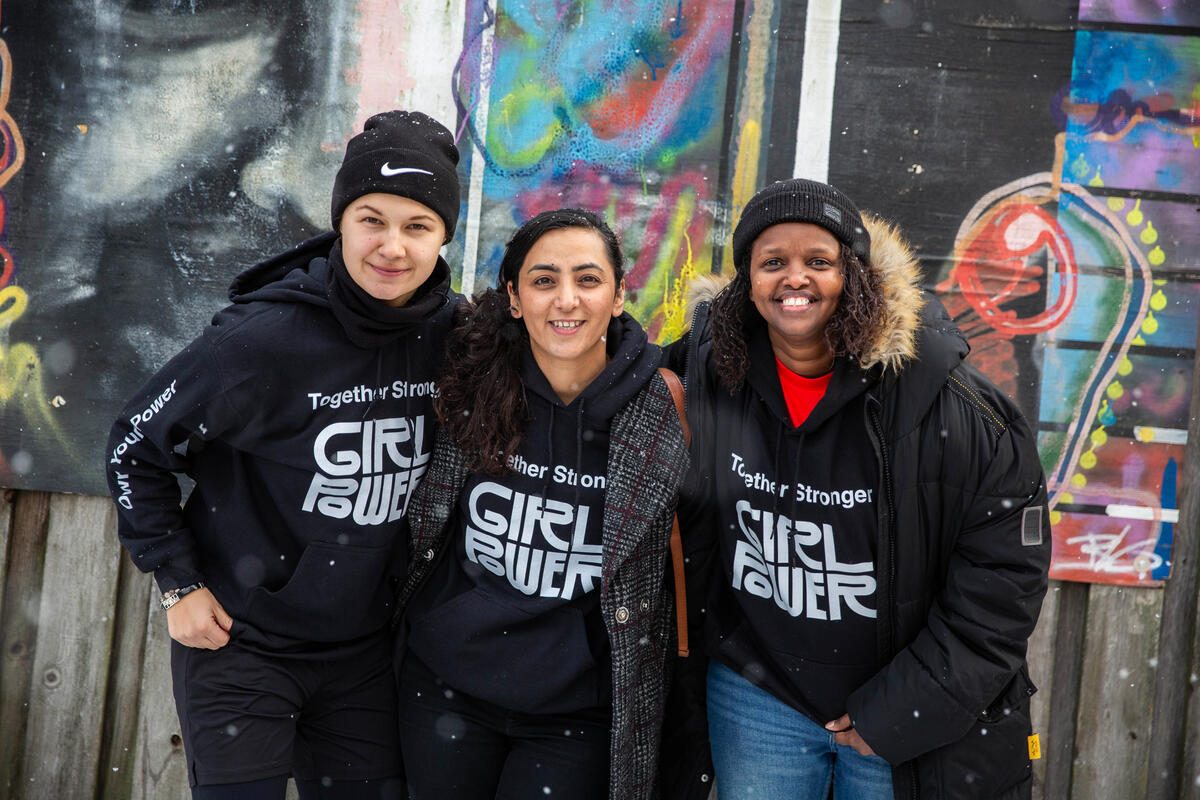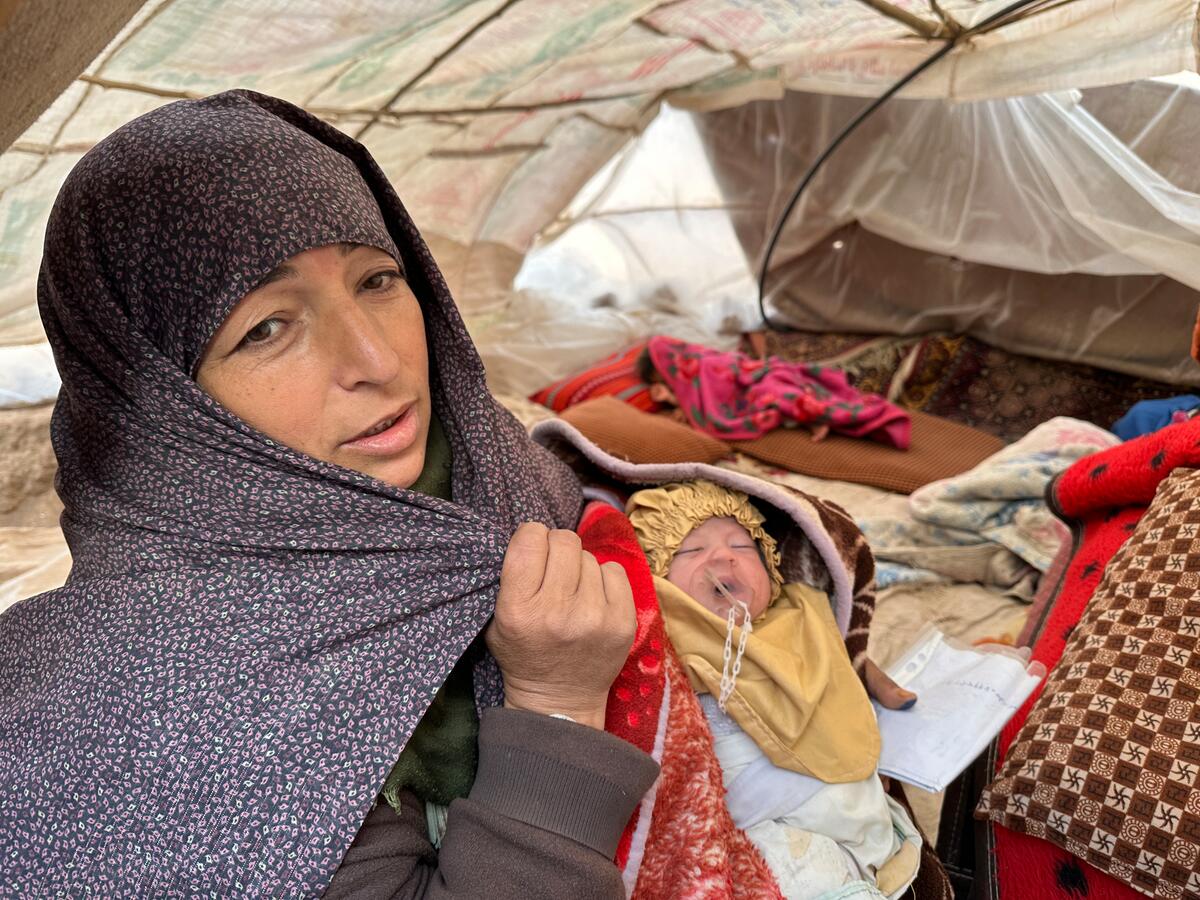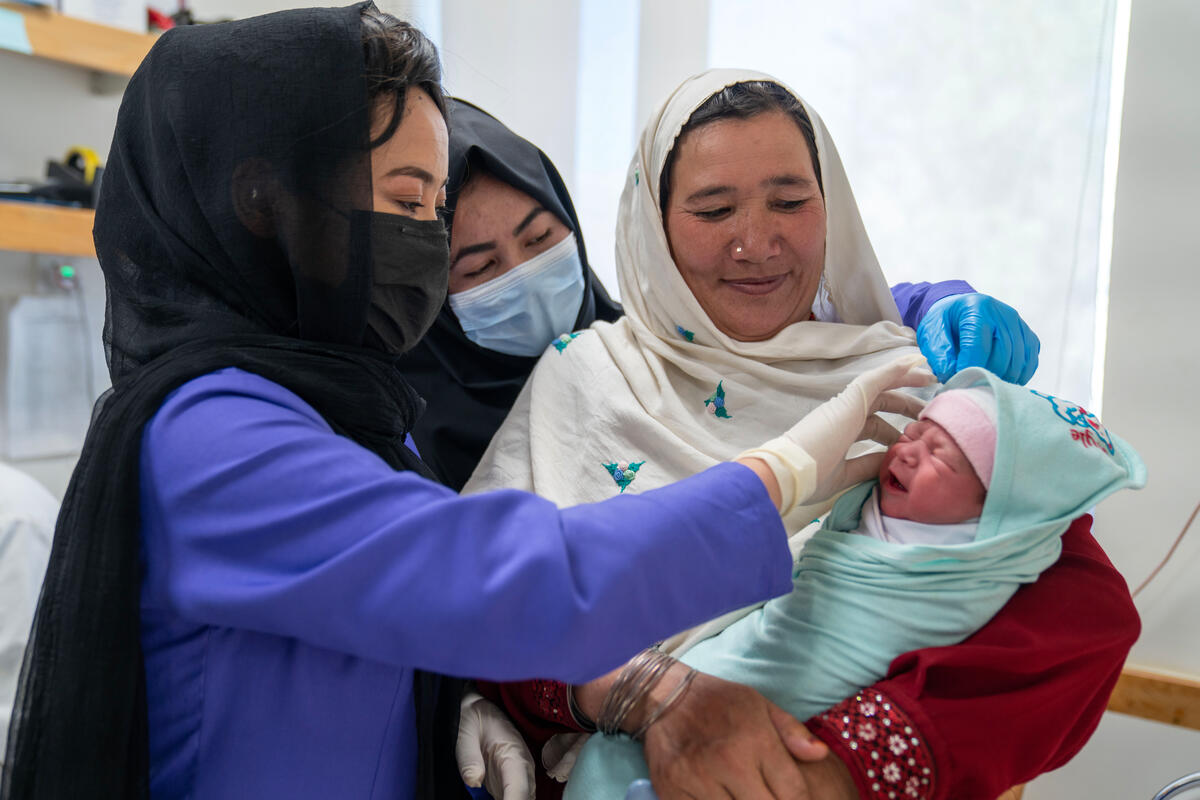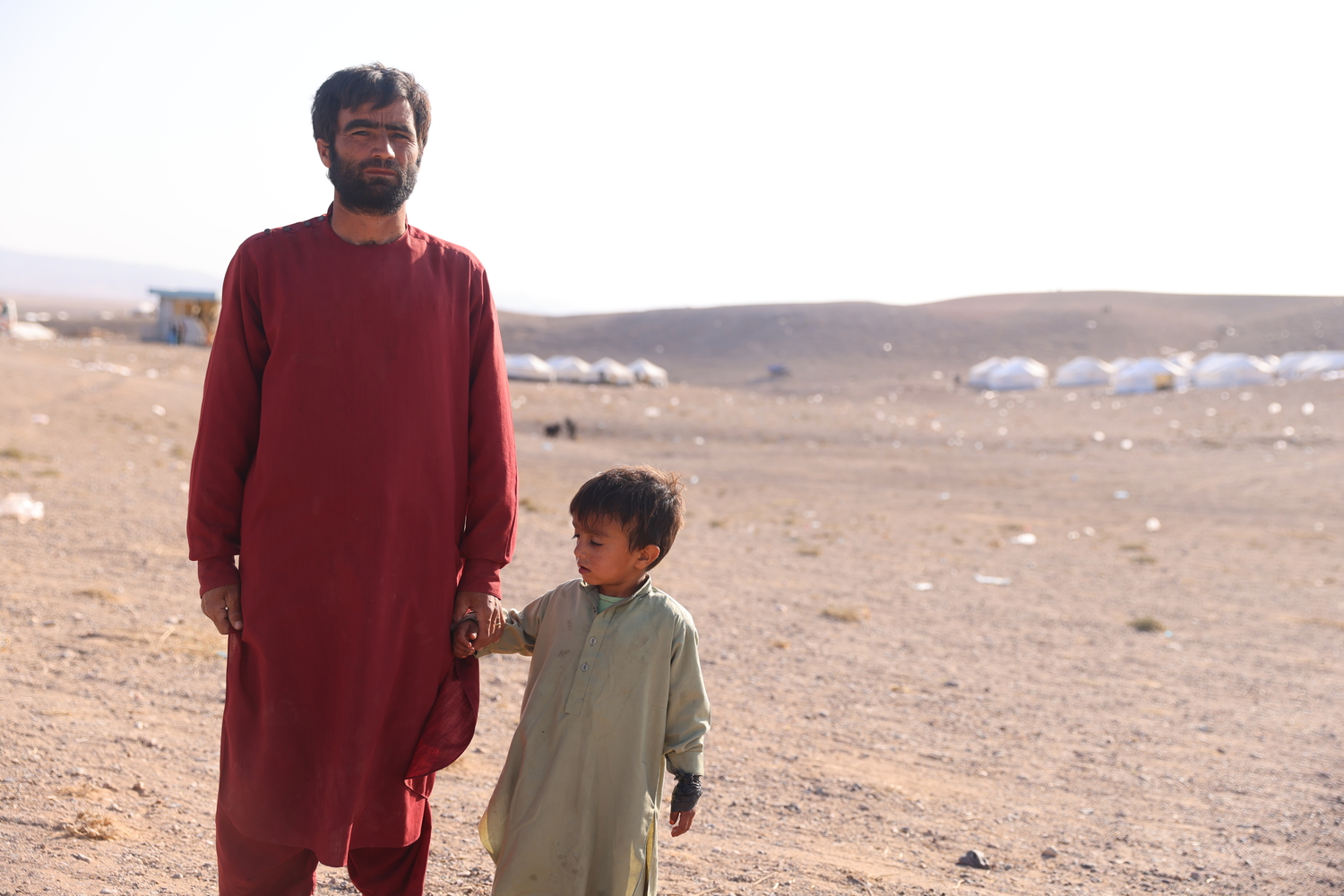Afghanistan Humanitarian Update No. 48
Afghanistan Humanitarian Update No. 48
15th January 2002
At a Glance:
- Post-New Year returns from Iran top 10,000
- Afghans massed at border
- UNHCR opens new camp in Pakistan
- Aid rushed to rain-damaged camps
Post-New Year returns from Iran top 10,000
More than 10,000 Afghans have returned home from Iran in the first half of January. This follows the large-scale returns recorded from Iran over 2001, when more than 140,000 Afghans returned home.
The number of voluntary returns via Iran's Dogharoun crossing point between Mashad and the western Afghan city of Herat hit 10,216 on Tuesday with the return of 789 Afghans.
Many of this year's voluntary returnees from Iran appear to be former seasonal workers. The vast majority of the returnees are men, but some families with women and children have also been crossing back to their native Afghanistan. Returnees receive information from the UN's Mine Action Centre on the threat of mines and unexploded ordnance before crossing back to Afghanistan.
While UNHCR is preparing plans to assist large numbers of Afghans home this year, mainly from Pakistan and Iran, the agency is cautioning Afghan refugees not to rush back to their war-torn country, nor for the main asylum countries to rush Afghans homewards. The winter season and the precarious security situation in many parts of Afghanistan as well as the need for rehabilitation projects to get underway are reasons for both Afghans and asylum countries to hold off on returning home too hastily.
Afghans massed at border
More than 13,000 Afghans remain massed just inside Pakistan's border with Afghanistan south-east of Kandahar at the doorstep of UNHCR's Killi Faizo transit camp. Six thousand Afghans have arrived at the windswept no-man's land since last Thursday, joining the some 7,000 who have camped at the frontier for more than a week.
UNHCR is involved in intense discussions with the Pakistani government regarding the Afghan new arrivals who desperately need humanitarian aid. We understand Pakistan's security concerns about opening its frontier. But these men, women and children need humanitarian aid. UNHCR is asking that Pakistan allow it to assist these desperate Afghans in the new camps it has established near Chaman.
Most of the new arrivals lack proper shelter, although small numbers arrived with tents they had received in makeshift camps for internally displaced persons (IDPs) inside their native Afghanistan. Others are sheltered under pieces of plastic that tear in the wind, and some simply sleep without any shelter whatsoever. Temperatures at the frontier drop below freezing at night, and the sanitation situation is extremely poor.
UNHCR is distributing water and high protein biscuits provided by the UN's World Food Programme, but the desperate Afghans need proper shelter and medical assistance. Pakistan has so far refused to allow UNHCR to register the new arrivals who are now caught out in the open.
Serious security problems continue to plague southern Afghanistan, the only remaining region in the country where the UN and the broader relief community have yet to resume aid distributions. The Afghans at Chaman said they fled Afghanistan because armed Taliban and bandits were still on the prowl in the Kandahar region, and that armed men moved about the IDP camps near Spin Boldak. Last week Gul Agha Shirzai, the new governor of Kandahar, travelled to Spin Boldak, and reportedly persuaded gunmen to withdraw, or to lay down their weapons. If this local agreement holds, this could help relief agencies eventually re-establish activities in the Kandahar region.
The several makeshift camps at Spin Boldak late last year were reported to shelter more than 60,000 persons. Many Afghans who fled Kandahar to escape the bombing campaign or to seek relief aid became stuck in Spin Boldak last year when Taliban border forces blocked their escape and Pakistan refused them entry.
UNHCR opens new camp in Pakistan
UNHCR opened its tenth camp in Pakistan on Tuesday near the southern city of Quetta. Latifabad camp, 75 kilometres from Quetta, was opened with the arrival of 392 ethnic Uzbek refugees from Afghanistan. Many Shi'ite Muslim Afghan refugees live amongst the majority Sunni Afghans in refugee settlements and towns in Pakistan, but some minority Shi'ite refugees feel insecure and UNHCR prepared the Latifabad site along with Basu camp in Pakistan's North-West Frontier Province to shelter these minority refugees.
More than 120,000 Afghans refugees are sheltered in 11 new UN camps in Pakistan's border belt. UNHCR manages ten new sites in Balochistan and North-West Frontier Province, while the United Arab Emirates Red Crescent oversees a camp near the Chaman border crossing. By the end of this week, UNHCR expects to open its 12th camp, to be located in North-West Frontier Province's Kurram agency, west of city of Peshawar. Among the newly established camps, Mohammed Khele, west of Quetta, is the largest, with more than 40,600 new Afghan refugees.
Aid rushed to rain-damaged camps
People in western Afghanistan rejoiced following the four-day downpour of rain last week, the first rain they've seen in three years. But by Saturday, many of the tents and mud huts in IDP camps surrounding Herat flooded or collapsed under the heavy rain. At least one death was been reported - a 5-year-old boy crushed under the roof of his collapsed hut in Shandaye camp, 20 km east of Herat. Shandaye is the second largest camp in western Afghanistan, accommodating some 25,000 people who fled drought-stricken provinces in central Afghanistan.
Aid agencies in Herat scrambled to provide additional shelter items for the displaced people in camps. UNHCR immediately provided 100 tents, 400 blankets, 240 plastic sheeting and 40 shovels from its Herat stockpile to IOM and the Danish Afghan Committee for distribution in Maslakh camp, Shandaye, Minaret 1 & 2 and Rawza Bagh, the five tented sites in the Herat area.
There are an estimated 300,000 displaced people in six camps in western Afghanistan. The majority of the people are farmers from Ghor and Badghis provinces who fled their homes beginning three years ago due to severe drought.
Although they were covered in mud from the sudden cloudburst, the displaced farmers were generally excited. Many expressed a wish to return home now that the rains have fallen if they could get transportation and assistance to recover livestock and seeds for their fields. UNHCR has begun planning with other agencies to assist the return of these drought-affected people.
The chief of UNHCR's Afghan operations, Filippo Grandi, visited Herat last weekend and met with Mr. Ismail Khan, the regional governor. The governor agreed to UNHCR's proposal to gradually shift assistance focus from the IDP camps to return areas, while ensuring assistance to any new IDPs. The governor emphasized the importance of not only assisting refugees and displaced people to return, but also helping them stay put once they're back in their home villages. UNHCR this year plans to focus on shelter and water assistance to returning refugees and displaced people in Afghanistan and to work closely with development agencies who could engage in larger projects to ensure reintegration of returnees.








